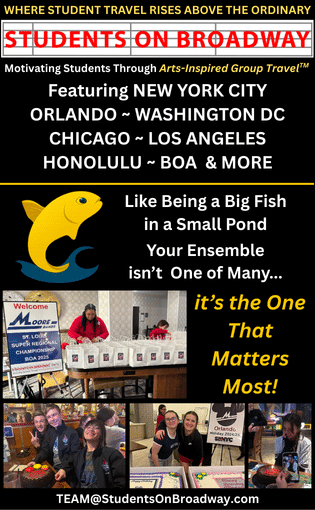In his book, The Myth of Laziness, Mel Levine posits that there are no lazy students. He says that students we perceive as lazy do not work up to their capabilities because parents and educators have not discovered what interests them. Without going into full detail, I don’t completely agree with his assessment. There are some people who are just plain lazy.
However, Levine does have a valid point. If you only looked at certain aspects of my life, you would consider me lazy, when the simple fact is that I find certain tasks unpleasant and can think of a thousand things that I would rather do instead. Take car repair, for instance. I cannot stand working on a car; I will procrastinate on some of the most basic elements of car maintenance. While other manly types will ponder and tinker a whole Saturday away with their maimed vehicles, I could think of nothing worse. I would rather drive it over to a repair shop and read a book or play on my iPhone in the waiting room. I hope this does not count as laziness. It is often the same way with students. This realization has prompted me to be slower in calling a kid lazy than I might have previously. Instead, I have first made a greater effort to find out what makes a seemingly lazy student tick.
When I began teaching many years ago, I tried to motivate students the way I was motivated – recognition and awards. It seemed a great cure-all; give players recognition and awards, and all motivational problems would disappear. Imagine my dismay when I found award certificates stuffed in the back of a band locker during my first summer cleaning. When I was young I would have had the certificate laminated, framed, and hung in my room. The lesson I learned: Not everyone is motivated by recognition and awards. I came to realize that there is no one-size-fits-all motivational technique; it is more complicated than I ever imagined.
Richard Lavoie, in his book The Motivation Breakthrough, identifies eight different motivational types: gregariousness, autonomy, status, inquisitiveness, aggression, power, recognition, and affiliation. Every trait has a positive and a negative side, but if we view each trait from a positive standpoint we can use it to our advantage.
Every student also has a unique pattern of forces that provide motivation. Something that might motivate one player may be useless with another. Just as different styles of instructional techniques are helpful, a variety of motivational techniques should also be used. Lavoie identifies six motivational approaches that can be aligned with the eight motivational types: projects, people, praise, prizes, prestige, and power.
 Gregariousness
Gregariousness
Gregarious band students love to be in a crowd, have many friends, and dislike solitary or independent tasks. They are leaders and joiners. Their gregariousness can be positive as shown by their popularity and friendliness or negative when they challenge authority or become the rotten apples that spoil the whole barrel.
Band offers a haven for gregarious students and plays into their natural instincts; band events themselves are great motivators because these students get to be in a crowd. These are probably the easiest kids to motivate. However, a conscious effort is necessary to nurture these types of students. Give them organizational responsibilities where they work with others on important projects like fundraising or organizing a trip or band party.
 Autonomy
Autonomy
Autonomous band members prefer to work independently where everything depends on their own actions. Autonomous band students are often quite productive and focused, but prefer going it alone so they have more control and can make their own decisions. They cannot tolerate the indecisiveness and debate involved in group decisions.
Unfortunately, autonomous types can have difficulty seeing how they fit into a group that often depends on finely-tuned cooperation between individual members. Sometimes first chair players have absolutely no interest in being a section leader or a leader of any kind. I can recall pushing a good player to pursue a leadership position and immediately regretting the move when it became obvious that he was not motivated to lead. Some students benefit from a push toward leadership, but at some point a director has to accept that leadership is not for every student. Autonomous students are best motivated by tasks that they can do alone, whether it be composing or arranging a piece for the band or preparing a solo.
Status
Students who are motivated by status have self-esteem that is directly tied to the opinion of others. They worry about what others think and are sensitive to criticism. They often need reassurance and praise. The effectiveness of praise has been debated in educational circles for many years, but there is a happy medium between lavish, undeserved praise and withholding praise completely.
One alternative to praise is encouragement. This is often thought to be synonymous with praise but it is not. Praise is largely conditional; it recognizes success, but is withheld in response to failure. Encouragement, on the other hand, is a positive acknowledgement of a child’s effort or progress. Praise works, but encouragement is better.
In his autobiography Cellist, Gregor Piatigorsky tells of his first meeting with Pablo Casals. The nervous Piat played a Beethoven sonata, making several mistakes. Casals praised Gregor and gave a detailed review of all the sections he most enjoyed. Gregor knew that he had played poorly and was greatly disappointed at what he saw as Casal’s obvious insincerity.
Some years later, the two men had become colleagues and friends. One evening, Gregor reminded Casals of their first meeting and told Casals how disappointed he was by his lack of candor. Casals responded angrily, “I praised you for the passages you played beautifully and musically. Leave it to the ignorant and stupid who judge by counting on the faults.”
Besides encouragement, other are good substitutes for praise are interest, gratitude, and enthusiasm. Lavoie speaks of what he terms “the power of interest.” More than praise, just expressing an interest in the lives of our students beyond band can foster motivation; people love talking about themselves. Expressing gratitude to a student underscores the importance of their role in band. Enthusiasm, regardless of personality type, is a necessity for a teacher.
 Inquisitiveness
Inquisitiveness
Inquisitive people are extremely curious and have a need to learn and know. They continuously ask questions. These are often the students who drive a director crazy. Their main form of communication is through asking questions about anything and everything. The good news? Inquisitive students often volunteer, love information, and enjoy experimenting. The key to working with these students is channeling their creativity. These are the type of students who would love to publish a band newspaper or set up a band website. Some may even try composing.
Aggression
I had a student several years ago who was quite outspoken and opinionated. She often approached me and started her sentences with “Will you please tell everyone that….” As I tired of this, I decided that if it needed to be said I would let her get up in front of the band and say it. It made her feel better, lessened her aggression, and was probably better received from her since it was from a peer rather than me.
Aggressiveness is not necessarily a negative trait. It can be channeled from bullying and intimidation into positive aspects like leadership. Aggressive people are willing to confront perceived injustice or unfairness, and they are interested in expanding their sphere of influence.
If an aggressive student is challenging you, there can be problems. However, if a director judiciously redirects the student’s energies, the aggressiveness can be of great value. Aggressive students are power-driven and relish responsibility and authority. This should not be viewed as a negative trait. A child motivated by power is among the most feared and misunderstood in bands. Sometimes we may believe that they want our power. That is not the case – they just want some of their own. It’s like a candle: I can touch a wick of mine to yours without diminishing mine.
Aggressive students believe that every situation should have someone in charge even if it is not them. If a leader fails to take charge, power-driven children will take charge because they need structure. Seek the power child’s advice, give him responsibility, let him help others, let him help generate solutions, and step in to negotiate when appropriate.
Power
A couple of years ago I had two junior high students locked in a real power struggle. They were friends, but very competitive friends, and both really liked taking charge. Unfortunately, there was only room for one president, and the vice-president kept wanting to take over the president’s responsibilities. This was actually a good problem because in some years no one wants to take charge. I solved the problem by defining their roles more clearly and expanding their responsibilities so they both were able to have some measure of power independent of the other.
Many power-driven students have leadership potential. Coach them on leadership skills because they often have negative traits that prevent them from achieving leadership positions. Guide and direct, do not thwart.
Recognition
Most people are driven by recognition for their accomplishments and efforts. Recognition-driven people are not necessarily braggarts preening for attention. Some, for whatever reason, have a greater need for recognition than others.
I had a parent tell my assistant that her daughter didn’t believe she received enough credit for the things she did for the band. When he relayed that comment to me I was incredulous. I easily rattled off several times I had recognized her work both privately and publicly. The stubborn part of me wanted to stop recognizing her if she was going to be difficult about it. However, the more I thought about it the more I realized that recognition was the fuel that kept her going, and that in terms of motivation she was a gas-guzzler as opposed to a fuel-efficient hybrid. That’s okay. She was a hard worker, and if it took extra encouragement to keep her going, that was fine with me.
For some students, particularly girls, public recognition is abhorrent to them and more of an embarrassment than anything else. A kind word or compliment given individually is all that they need and many actually prefer. I regularly compliment individual students on the way back to the band room after marching practices.
Affiliation
This student thrives on connection with others and with organizations, movements, and institutions. They seek a sense of belonging and particularly value the attention of the director. While some players never set foot in your office, these kids seem to never leave. By their senior year, these students have collected mountains of band-wear, enough to fit them for an entire month.
For some kids, affiliation is not important, and this can be a source of frustration for the affiliated-minded director. I had one class of students that rarely hung out in the band room in their spare time and infrequently wore their band shirts or anything else that connected them with band. This irked me a little, but they were some of my most dependable band members. It was just that affiliation was not the driving force of their band experience.
Like the gregarious child, students with a strong need for affiliation are the easiest to motivate. Despite this, an effort needs to be made by the director to take advantage of this positive trait and provide opportunities for them to socialize and bond beyond the typical band practices and performances.
Determining a child’s motivational type is not an exact science. It is complex because traits are often reflective of various categories. The important thing is to be attuned to individual students personalities and characteristics. If this is done, a pattern will surface that directors can use to motivate each one most effectively. So before considering a kid lazy, view him as a challenge. Make every effort to discover what gets his motor running. Speaking of motors, I need to go check the oil and steering fluid in my minivan; I should have done it weeks ago.






